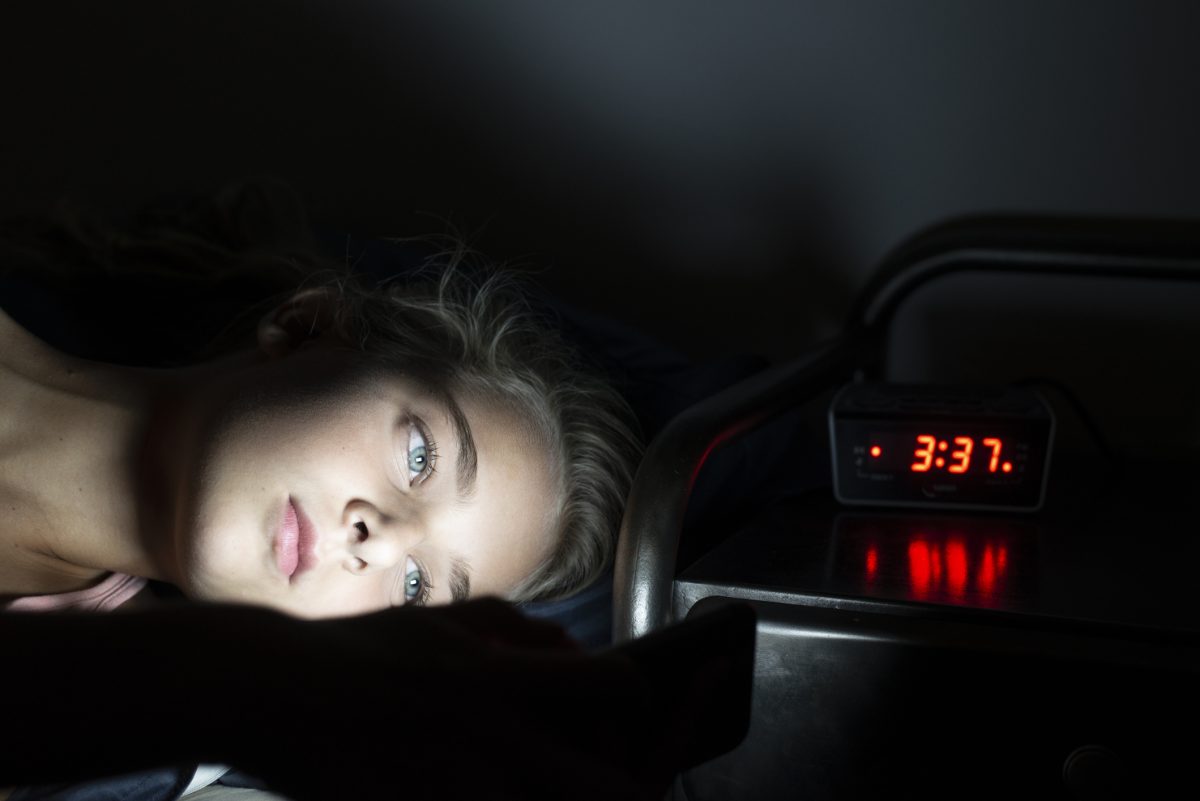Is your teen struggling to regulate their sleep schedule? Are they often up at odd hours and can’t get out of bed until late the next day? Has your teen been complaining about a lack of sleep or being unable to concentrate at school? What your child may be experiencing is referred to as sleep anxiety in teens, which can develop from an existing anxiety disorder.
What is Sleep Anxiety?
Sleep anxiety is not insomnia. Rather than being unable to fall asleep for no discernable reason, people with sleep anxiety cannot fall asleep because of a fear of falling asleep.
Unforunately, it’s a common anxiety, ranging from discomfort or worry about falling asleep, to sheer panic or phobia symptoms related to sleep, also known as somniphobia.
In other words, teens who have sleep anxiety are somehow anxious about falling asleep and will try to delay sleeping as much as they can, even if they want to sleep.
Sleep Anxiety Is Complex
Sleep anxiety in teens, and sleep anxiety in general, is a complex issue because sleeping is often inherently tied to mental and physical health, especially anxiety symptoms. A lack of sleep can greatly amplify feelings of paranoia, anxiety, and fear, meaning that trying to avoid sleep can actively make a teen’s anxiety surrounding sleep much worse.
Sleep anxiety has its share of physical and mental symptoms, as well as co-occurring disorders. Common issues that co-occur with sleep anxiety include sleep paralysis and nightmare disorder.
Sleep Paralysis and Nightmare Disorder
Sleep paralysis is a condition wherein a person may wake up from REM (rapid eye movement) sleep while their body is still under the effects of a self-induced paralytic state (called muscle atonia).
This state is triggered by the brain during deeper forms of sleep to avoid excessive thrashing during sleep and keep us from hurting ourselves in our dreams. However, waking up while paralyzed can be massively distressing. Because the body isn’t quite awake yet, and the mind is still in a half-sleeping state, it is also very common to experience vivid hallucinations as a result.
Because of the combination of immobility and hallucinations, sleep paralysis stories often involve “demons” or “monsters” that appear in the corner of the eye or are actively hovering/standing near the sufferer.
Some researchers even believe that old stories of demonic hauntings and possessions – such as the infamous story of the incubus sitting on a victim’s chest – are early examples of sleep paralysis being retold in myth or art form. In these cases, we become the victim of our own imagination and the brain’s capacity to translate fear and distress into nightmarish imagery.
These episodes can greatly affect a teen’s anxiety around falling asleep. Sadly, sleep paralysis is relatively common – as many as one in five people experience an episode of sleep paralysis occasionally, and over three-fourths of these episodes involve some form of hallucination. For many teens who experience sleep paralysis, anxiety surrounding sleep can become a serious long-term issue and make recurring episodes more common.
Sleep Anxiety vs. Other Anxiety Disorders
Anxiety disorders are the most commonly diagnosed mental health issues in the world, including the United States. Conditions like generalized anxiety disorder, social phobia, and post-traumatic stress disorder affect millions of people every year, and many of them experience symptoms for years and years.
Most anxiety disorders have their onset in adolescence, meaning teens experience a spike in these conditions as they enter adulthood. Dealing with sleep anxiety in teens is particularly important because of the way sleep plays a role in modulating our mental and physical health – without proper sleep, the body becomes more susceptible to illness, less resilient to stress, and struggles with recurring problems.
Unfortunately, one of the more common signs of a lack of sleep is recurring sleep paralysis. This can serve to further deepen a teen’s fear of sleeping, creating a powerful and destructive cycle.
The Onset of an Anxiety Disorder
While the onset of an anxiety disorder may be triggered by a distressing experience or particular event, most cases of anxiety occur randomly, and their cause can often be traced back to family history. However, while genes are a major contributing cause in anxiety disorders, there are other risk factors that make anxiety more common – and protective factors that improve a teen’s resilience against anxiety symptoms and make them less of a problem over time.
Learning to minimize these risk factors and build on your teen’s protective factors is important. Sleep is a big part of it.
Is Sleep Anxiety a Form of Insomnia?
Insomnia is described as a problem with falling asleep or an inability to fall asleep. In a way, sleep anxiety does include insomnia as a symptom, as teens don’t want to fall asleep. But rather than being unable to, it is a teen’s fear that affects their ability to sleep. As such, the answer to treating sleep anxiety in teens is not quite the same as other forms of sleeplessness or insomnia.
Addressing Sleep Anxiety in Teens
Paradoxically, the most direct way to treat sleep anxiety in teens is to help them improve their sleep hygiene and naturally induce a healthier sleeping schedule.
If there are other psychological or physical barriers to good sleep – such as sleep apnea or narcolepsy – medical instruments and several different forms of medication may be necessary.
If a teen’s reluctance to fall asleep is not accompanied by another form of sleep disorder, then a more effective answer would be a comprehensive anxiety treatment plan, including individualized talk therapy and, if needed, an anti-anxiety medication.
Improving a teen’s sleep can help them address their sleep anxiety by bringing them back to a state of calm, deep, fulfilling nightly sleep.
Consider Professional Help
Sleep hygiene and sleep anxiety in teens is not an easy subject to tackle. It can take radical change to help a person truly address their sleep – including physical activity, a change in diet, aromatherapy, and a major rework to the bedroom, from dimmed lighting to better temperature control, a different mattress, and certain bed-related rules, such as limiting the bed to only sleep (meaning, no lying in bed while reading, studying, or playing games) and cutting off screen time after 9 pm.
Consider talking to a professional at Visions Treatment Centers about addressing your teen’s anxiety symptoms and sleep-related problems.








